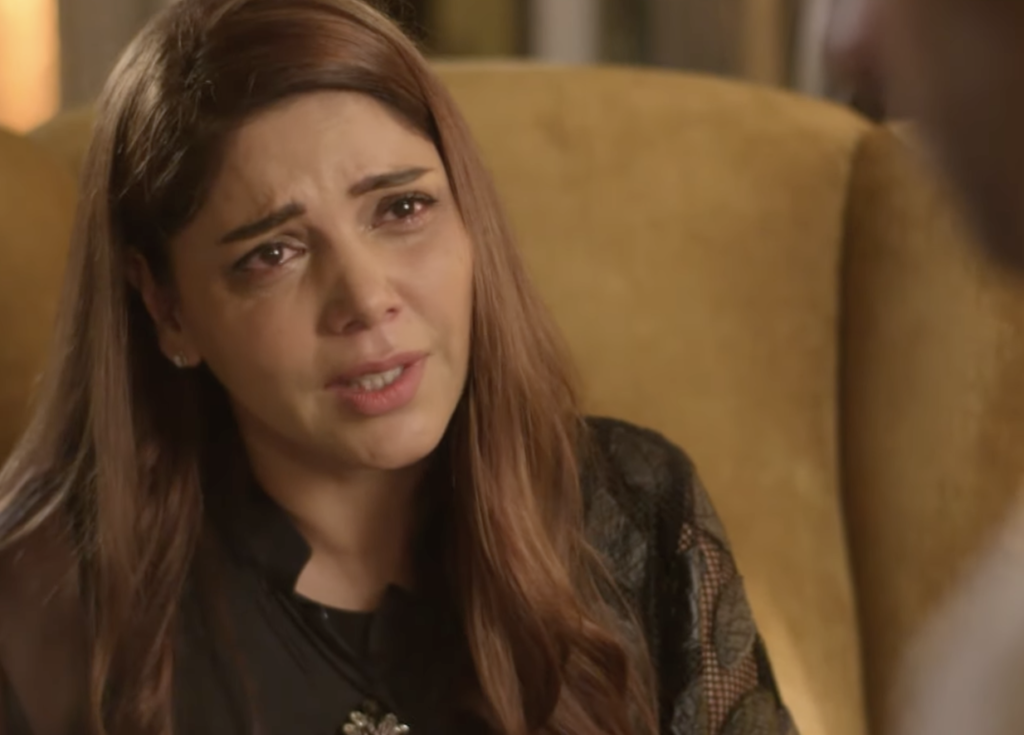Dobara, a story written by Sarwat Nazir and directed by Danish Nawaz, stars Hadiqa Kiani and Bilal Abbas as the central characters. The story revolves around a woman who is slightly ‘older’ who marries a man who is much younger than her after her much older first husband passes away. The story has been through many twists and turns with Mehru (Hadiqa Kiani) and Mahir (Bilal Abbas) still dealing with pushback from their family and their society for being a ‘mismatched’ couple.
In the recent episode (episode 23), Mehru and Mahir are almost about to fall apart due to a false allegation levelled at Mahir by Mehru’s daughter-in-law (Sabena Siddiqui) in an attempt to get Mahir out of the house. This scheme was orchestrated by Mahir’s phuppo (Sakina Samo) who wants to usurp Mehru’s business and wealth and keep a control over everything.
Mehru, devastated after believing her daughter-in-law, is in mourning and later reveals to her son (Usama Khan) how his father was always in love with another woman. Mehru speaks about how she always had to be measured up to her: Mehru was just a young, fun-loving woman who was constantly pitted against her husband’s first love, an older, poetry-loving, German woman who he never really got over.
In an emotional speech to her son, Mehru reveals how she gave away her best years to her husband and never cheated on him, despite him being in love with another. Affan (her son) realizes the error of his ways. While idealistic, it also shows you how ‘honour’ of men stems from a place of ignorance and apathy for what their mothers and sisters are going through.
It’s important to note how much of a raging bull Affan was against Mahir and how he insisted that this was all a matter of ‘respect’ and ‘honour’ in society and how his mother had decided to choose her own partner. A lot of these ‘rules’ that society sets for us are arbitrary and sometimes overlook the personal happinesses of the real people involved. Therefore characters and individuals like Affan often lose sight of what’s really important and that these rules and regulations are made to make life smoother, not more difficult.
We make social contracts with other human beings to live fuller lives and facilitate each other in the journey of life rather than be isolated or live in grief and fear all our lives: a concept that is also unIslamic in many ways. A woman is fully allowed to choose her own partner and after her mourning/iddat period of four months and ten days after a partner’s death, she can remarry if she wants to. However, this has become a massive taboo in our society which is bizarre. The drama rightly points out these double standards and takes a deeper look at what happens when you dare break stereotypes and go beyond the taboos that exist.
